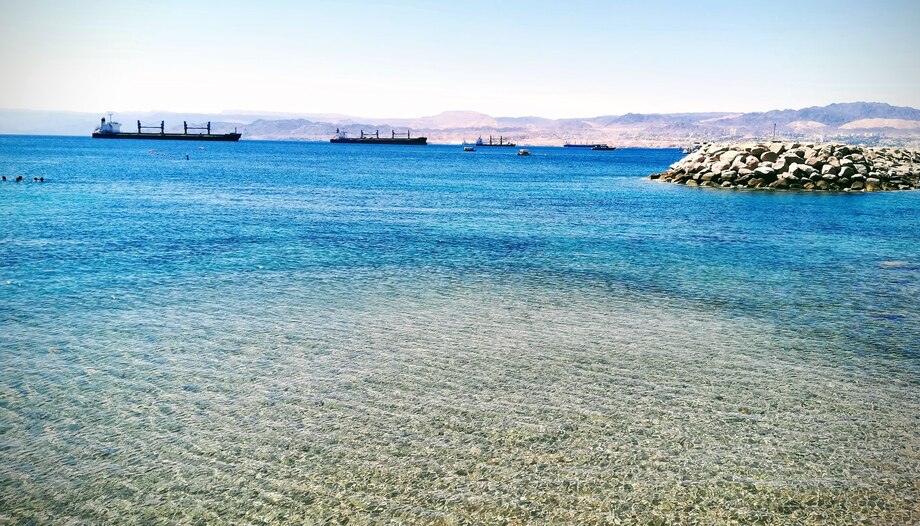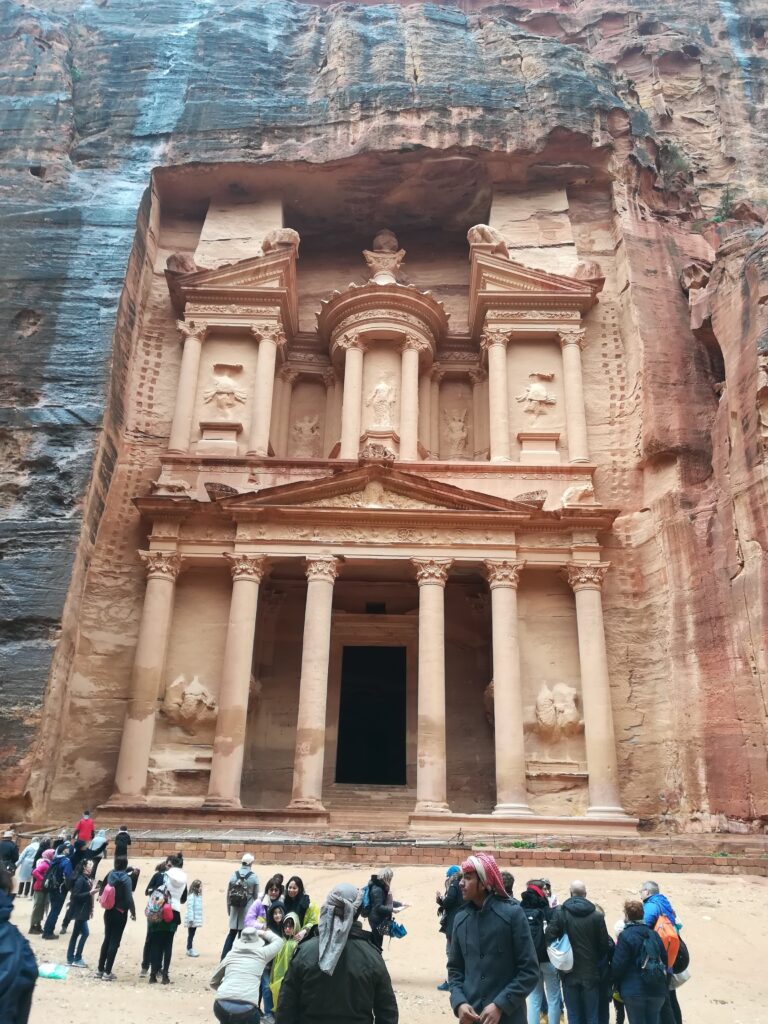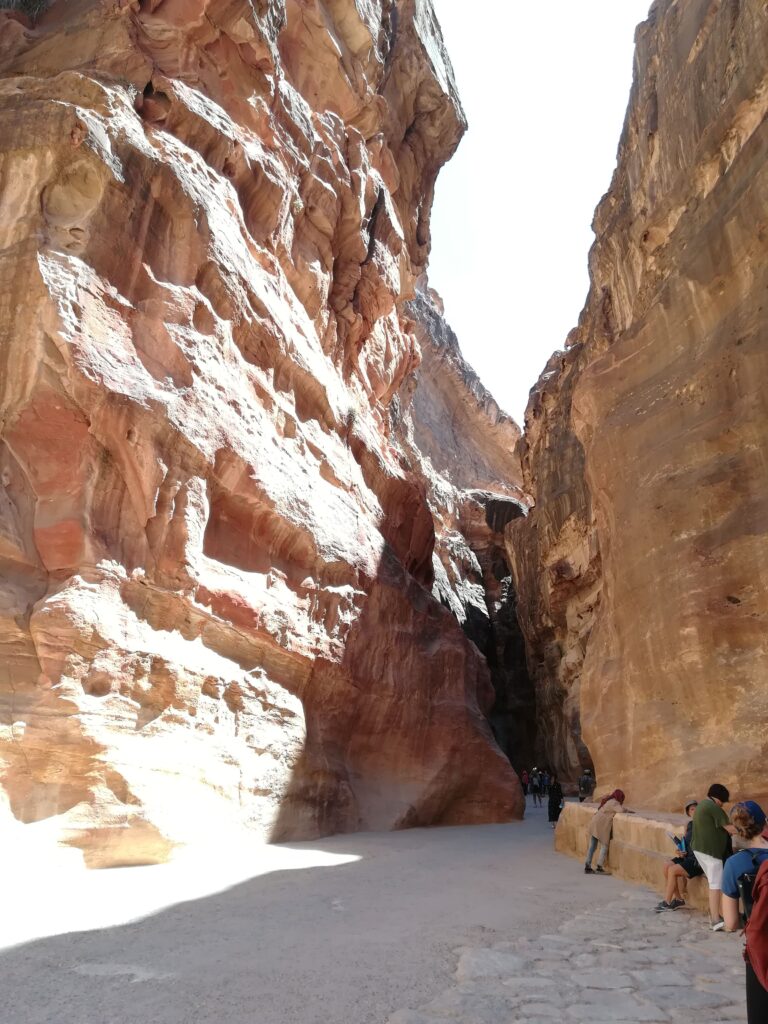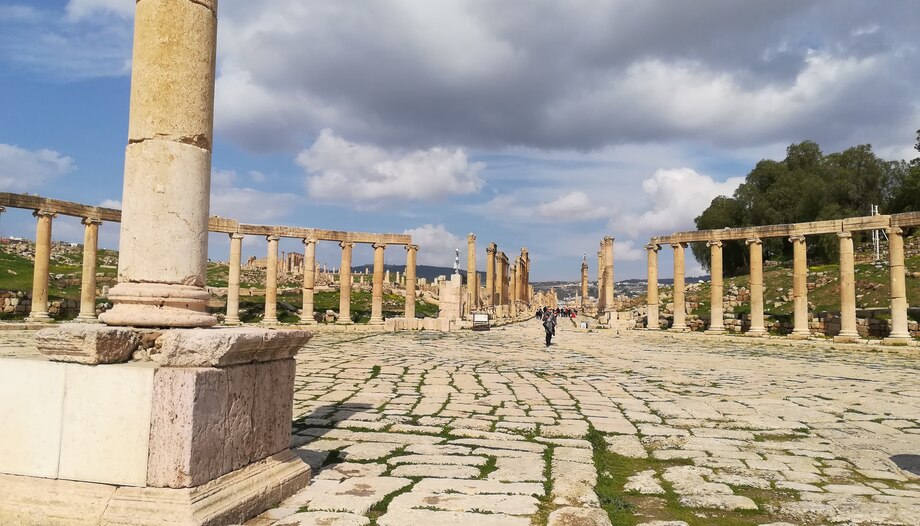A key date in the history of modern Jordan is August 20, 636, which marks the Islamic conquest of Syria and Palestine (with Transjordan), when the forces of Caliph Omar (one of the Rashidan caliphs, the first successors of Muhammad) defeated the Byzantine Empire at the Battle of Yarmouk, right in present-day Jordan.
Later, the region became an integral part of the nascent Islamic empire, particularly the Umayyad caliphate, with its capital at Damascus. The Umayyads built numerous castles, palaces and military posts in the desert, such as Qusayr Amra and Qasr Al-Jaranah.
From 750 AD, it was the turn of the Abbasids, the dynasty that ruled the Islamic empire and the new capital, Baghdad. During this period, Jordan was part of the large province of Syria, called Bilàd al-Sham.
The Crusades and the Ottoman Empire
Like its neighbors Palestine and Syria, Jordan was also affected by the Crusades and was the scene of numerous battles. Famous is the castle of al-Karak (on the ruins of the ancient Moabite capital), built by the Crusaders to control trade routes in the newly conquered territories, but which soon fell into the hands of Saladin, the famous Islamic leader and founder of the Ayyubid dynasty, when he reconquered the region at the end of the 13th century.
The Ayyubids were succeeded, from 1260, by the Mamluks (a military dynasty of servile origin, the term mamluk, in Arabic, means "possessed", "slave"), who defeated the Mongols, restoring a certain economic and political stability to the region.
Like many of the countries of the Middle East and North Africa, Jordan was annexed to the Ottoman Empire in 1516. During the Ottoman period, which lasted more than four hundred years, the entire area of Palestine, Syria and Jordan, as well as others, suffered a great economic decline, becoming largely rural and overdue.

The Arab Revolt and Lawrence of Arabia
Jordan followed the fate of neighboring Palestine even before (Hussein-McMahon and Sikes-Picot Agreements), during and after the World War Iwhen it was the scene of the Arab Revolt against Ottoman rule (1914-1916). At this juncture a British army officer, archaeologist and writer, Thomas Edward Lawrence, who became famous as Lawrence of Arabia, especially distinguished himself.
Lawrence played an important role as a liaison between Arab rebel forces and the British army against the Ottoman Empire, personally coordinating and directing guerrilla operations that contributed to the defeat of the Ottomans in the region. He talked about it in his famous book "The Seven Pillars of Wisdom", but the story is also known to us from the movie "Lawrence of Arabia".
Thanks to the support of the British and the sheikh of Mecca, the Hashemite sherif (from the Arabic sharìf, nobleman) Hussein ibn 'Ali (founder of the dynasty to which the current royal family of Jordan belongs, a dynasty that ruled first in the region around Mecca, Hijaz, and then in Iraq and Transjordan, and whose origins go back to Hashim ibn ῾Abd Manaf, Muhammad's great-grandfather), the Arab forces contributed to the final fall of the Ottoman Empire and to the creation of new borders and states in the Middle East, obviously according to the plans of the Western powers, especially Great Britain, which, with the San Remo Conference and the Treaty of Sèvres (both 1920) was assigned (what a coincidence!) the Mandate over Palestine and Transjordan. And in 1921 Emir Abdallah I, son of Sherif Hussein, was appointed to rule the new Emirate of Transjordan, under British supervision (Mandate).
The Hashemite Kingdom of Jordan
In 1946, Transjordan finally gained formal independence from the British Mandate and officially became the Hashemite Kingdom of Jordan, with Abdullah I as monarch. Since its birth, the Kingdom of Jordan has been involved in several regional conflicts, including the First Arab-Israeli War of 1948-1949, which led to the country's annexation of the West Bank and the West Bank. East Jerusalem (Jordan did not relinquish sovereignty over these territories until 1988, in favor of a future Palestinian state).
In 1952, Hussein ascended the throne and ruled the country for almost fifty years, until his death in 1999.
During his reign, Hussein had to face a thousand external and internal difficulties: the Cold War, with Jordan always on the side of the United States and Great Britain, the Arab-Israeli conflicts (in particular the Six-Day War in 1967 and the Yom Kippur War in 1973) and a thousand economic and social problems, especially that stemming from an ever-increasing influx of Palestinian refugees, whose paramilitary organizations, mainly the Palestine Liberation Organization (PLO), came over the years to build a veritable state within the state, undermining the authority of the Jordanian government and monarchy and involving the country, reluctantly, in conflicts with its powerful Israeli neighbor.
Black September
Thus, in 1970, especially in the month of September (from which the "Black September" conflict takes its name), King Hussein decided to wipe out the power of the Palestinian organizations in order to regain full control of the territory. The confrontation between the government forces and the Palestinian organizations was very bloody (tens of thousands of people died on both sides) and lasted a whole month. Eventually, the PLO forces were expelled from Jordan and found refuge in Lebanon (where practically the same thing happened, but to a much greater extent).
Black September marked a turning point in Jordanian-Palestinian relations and led to the formation of the terrorist group of the same name, responsible for the bombing and kidnapping of Israeli athletes at the 1972 Munich Olympics.
In 1994, Jordan signed a peace treaty with Israel, with normalization of relations and important benefits for both parties.

Upon Hussein's death, his son Abdallah II, who had always been at odds with his younger brother, Prince Hamzah, ascended to the throne. Despite Hussein's desire for Hamzah to become king after Abdallah, Abdallah deprived his brother of the title of crown prince in 2004, which led to his being accused in 2021 of mobilizing citizens against the state and placed under house arrest.
After securing his release, he was placed under house arrest again in 2022, after Hamzah renounced the title of Jordan's prince and publicly accused the country's institutions of not conforming to his late father's wishes. Nevertheless, Abdallah has striven to modernize the country, promoting economic and social reforms, but Jordan now faces a number of difficulties due to the aftermath of the Arab Springs (2011), with civil wars in Syria and Iraq and the resurgence of the Israeli-Palestinian conflict, as well as high unemployment and poverty rates and domestic political pressures for further democratization.
Minorities in Jordan
Among the ethnic minorities present in Jordan, we have mentioned in a previous article the armeniapresent with a few thousand (3,000). Another interesting but more numerous community (between 100 and 170 thousand) is that of the Circassians. Originally from the Caucasus, in particular Circassia, today part of Russia, they were forcibly exiled by the Russian Empire in the 19th century, during the Caucasian Wars and the Circassian Genocide (between 800,000 and 1.5 million dead, 90 % of the Circassian people).
The survivors found refuge in the Ottoman Empire, settling in various parts of present-day Jordan, but also in Israel and Syria. The Circassians maintained a strong cultural identity, preserving their language (Circassian, related to Abkhaz) and traditions. Their communities are known for their organization, military prowess (the Jordanian Royal Guard is a Circassian guard) and respect for traditions.
Among the religious minorities, the most important is the Christian minority, which constitutes about 2-3 % of the total population (250,000 believers). Compared to other Arab Islamic countries, Christians in Jordan (as in Lebanon and Israel) enjoy a certain religious freedom and a relatively privileged position in the economic and social fabric of the nation.
Christians in Jordan
The Christian presence in Jordan, as we saw in the previous article, followed immediately after the death of Jesus and has remained constant, despite massive Islamization, up to the present day. The Orthodox Church of Jerusalem is the confession with the largest number of Christian faithful, followed by the Catholic Church (80,000 people, mainly of Melkite and Latin rite, but also Armenian, Maronite and Syriac) and several Protestant churches. Most Christians live in the cities of Amman, Madaba, Karak and Zarqa.

Although the state religion is Islam and the royal family itself claims descent from Muhammad, the Jordanian Constitution guarantees religious freedom and the right to practice one's faith, if it is not contrary to public order and morality. Jordanian Christians have the right to build churches, run schools and other social institutions (considered the best in the country) and are well represented in political, economic and social institutions, occupying reserved seats in parliament and even important positions in the government and the armed forces.
The best-known Christian (Catholic) social and charitable institution in the country is the Our Lady of Peace Center (Olopc), near Amman, which welcomes and cares free of charge for the disabled, refugees and the poor who cannot be cared for by the state. Founded in 2004 for disabled children and youth between the ages of 5 and 14, the center has since distinguished itself by hosting dozens of Syrian and Iraqi refugee families fleeing civil wars in their countries.
Despite the prestige and relative freedom they enjoy in Jordan, local Christians find themselves in an increasingly fragile situation, not least because of the upsurge of conflicts in neighboring nations, which expose them to pressure from the Islamic majority and reprisals, as well as the growing economic and demographic crisis.








